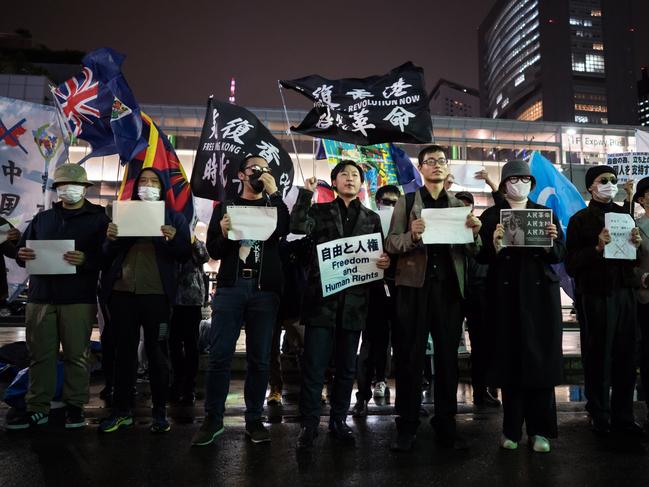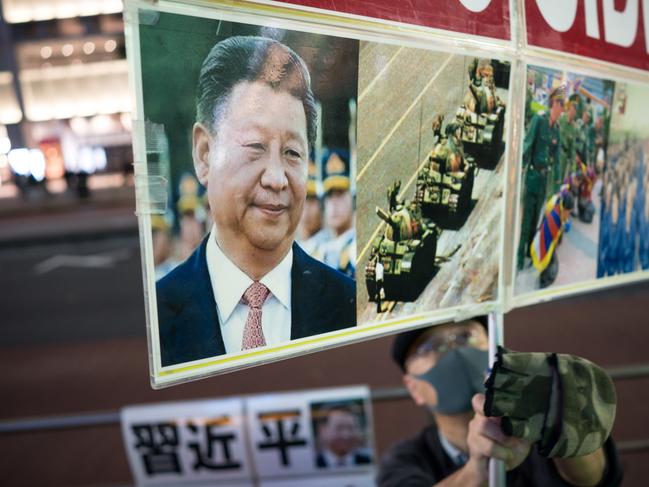Infections, inflation: What China’s Covid outbreak means for Australia
China’s battle with a surge in Covid cases and political unrest will be felt in the wider region as calls for an end to strict lockdowns grow.
Economy
Don't miss out on the headlines from Economy. Followed categories will be added to My News.
China “has to ease” widespread Covid-19 lockdowns before demonstrations in every major city take an ugly turn.
That’s the advice of former Labor MP Michael Danby, who’s warned of the comparison between the current anti-lockdown protests and those of Tiananmen Square.
It comes as experts warn the crisis engulfing China could cause problems for at least a year and have “clouded” Australia’s long-term economic outlook.
Mr Danby said China was proving once again to be “stuck in the past”.
“Chinese people all over, of all ages, are involved in these demonstrations,” he told 2GB.
“China has to ease these lockdowns but because people are not properly vaccinated, I predict there will be a lot of deaths of older people.”
China reported more than 140,000 confirmed Covid cases and 395 deaths in the last week, according to World Health Organisation statistics, as the continued implementation of its strict Covid-zero policy sparked protests across the country and in neighbouring nations.
Infectious disease experts say the country’s low level of previous infections, poor vaccine uptake and the relatively low effectiveness of its Sinovac and Sinopharm vaccines had left it vulnerable to a surge in cases.

The outbreak has forced entire cities to be placed into lockdown, causing concern for Australian industries reliant on Chinese production.
Australian National University infectious diseases physician Peter Collignon said Australia’s main trading partner would have a “problem” for up to one year as it contended with the factors causing the virus to rapidly spread across its mainland.
“China has never had a lot of spread, at least as far as we can tell, but they’ve also got fewer people vaccinated, with less effective vaccines,” Professor Collignon said.
“Whenever Covid spreads through a community for the first time, and Australia is an example, we had high levels of vaccination, yet you still get a lot of people unfortunately dying, particularly over the age of 70 and 80.
“That’s the age group where China hasn’t got enough people vaccinated … you’ll have a lot of people getting sick and unfortunately a lot of deaths, and what they mainly need to do quickly is get their older people vaccinated.”

China’s tight restrictions on travel meant Australia was unlikely to be threatened by a spike in cases from international visitors, but there was a worry a more harmful strain of Covid could develop if the level of cases there continued to rise, Professor Collignon said.
“They are about 20 per cent of the world’s population – could they get a more virulent strain of Covid? Yes, they could,” he said.
“But with time they become less virulent, and Covid is everywhere, so I’m not sure China is of much more risk to us than Europe or the rest of Asia.”
Professor Collignon said if there would be any negative impact on Australia from China’s Covid wave, it would likely come in the form of economic damage.
Moody’s Analytics macroeconomist Harry Murphy Cruise said the outbreak had come “at a really bad time” for China and had created uncertainty around Australia’s long-term economic outlook.
“We’re seeing mobility restrictions reintroduced in some places, and that’s obviously going to hit (economic) activity,” Mr Murphy Cruise said.

“They are already facing a handful of other challenges which the current Covid wave is exacerbating, so as their major trading partner, we will have challenges that flow from that.”
The prolonged restrictions caused by the outbreak would mean Australia’s service exports, such as tourism and international education, would continue to be hit hard, he said.
But he said there was a “silver lining” for the Australian economy due to how China tended to respond whenever they ramped up Covid restrictions.
“China spends massively to offset these challenges … they’re trying to build their way out of trouble, as we have done in the past,” Mr Murphy Cruise said.
“That increases our demand for what we sell – iron ore and coal goes into steel production, so there is a little bit of silver lining.”
For people worried by inflation and cost-of-living pressures, Mr Murphy Cruise said Australia’s outlook was mostly positive despite supply woes from the situation in China.
“Any kind of mobility restrictions cause disruptions to production, but here, food prices are falling, the car market is seeing prices fall, airfares are on the way down … we’re seeing improvements elsewhere that won’t derail inflation.”
Originally published as Infections, inflation: What China’s Covid outbreak means for Australia


